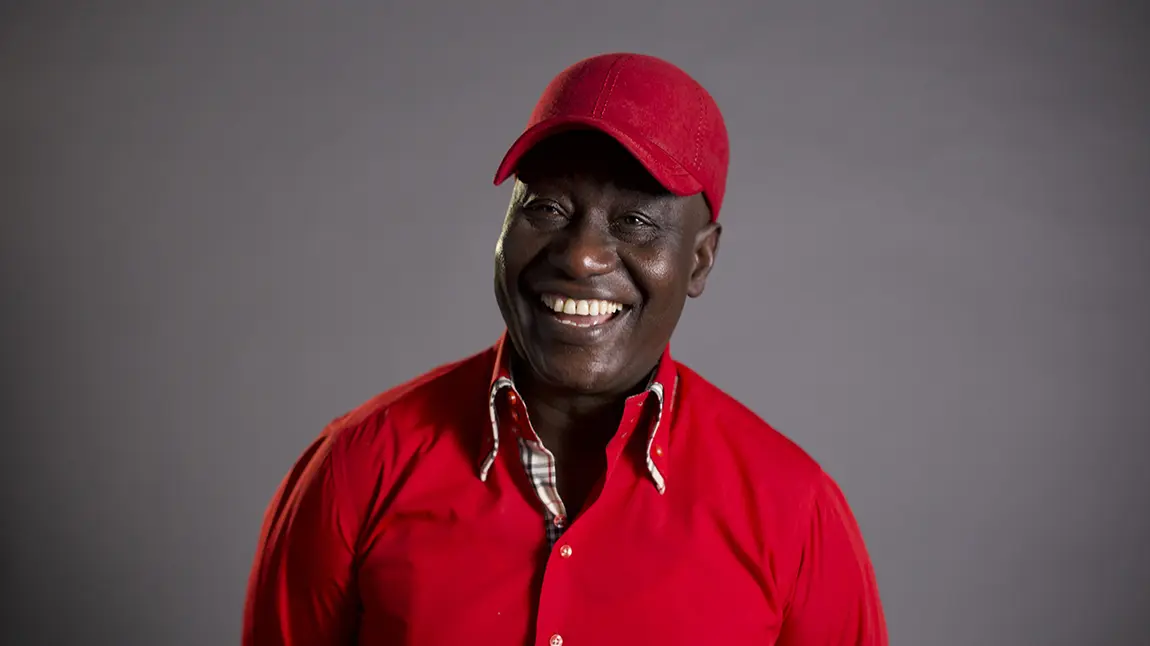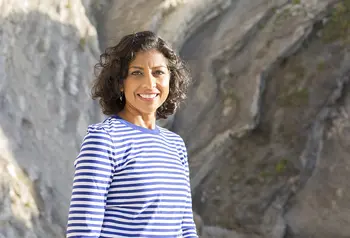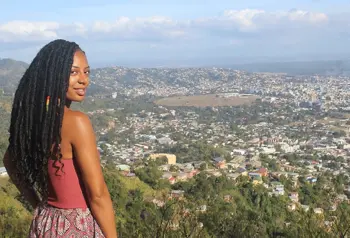How we can help everyone access the "Natural Health Service"

I'm so excited to have won this National Lottery award. It’s timely that it happened now because of the disproportionate impact of COVID-19 on Black and ethnic minority communities who tend to live in what I call desperate ecologies. By that I mean: lived environments with poor-quality green spaces.
I grew up in rural Ghana. I came to the UK to study journalism at Cardiff University, having been awarded a Commonwealth Scholarship, and eventually achieved a master’s degree in Environmental Management and Conservation at Sheffield Hallam University. I am currently pursuing a PhD in Black Studies at the University of Nottingham.
The commodification of nature here has in a way marginalised groups that are not privileged, whether that’s to do with class or geography or race.
I founded the Sheffield Environmental Movement in 2016 against a backdrop of the work I had been doing in the environmental sector for a number of years – trying to support people from marginalised groups to reconnect with the natural world for their health and wellbeing.
The commodification of nature
The way nature is perceived in the UK or in the west is different from the way it is seen in the developing world or in the south.
In the UK the discourse about nature is more along the lines of conservation for leisure and recreation, whereas in the developing world, it is more is to do with preservation as a source of livelihood.
The commodification of nature here has in a way marginalised groups that are not privileged, whether that’s to do with class or geography or race. That was a shock to me. I was the only Black or ethnic minority student on my master’s course.
The impact of green spaces
Because of the trajectory of migration history, minority groups have settled in the UK in cities, and so they are disconnected or culturally severed from the natural world. Where they live geographically is the only place they know.
Plus, if you don’t have the proper kit, if you’re not privileged and you face institutional economic problems, then you can‘t access many green spaces.
This is significant because a lot of research has demonstrated the impact of nature and green spaces on people’s health and wellbeing.
I have seen how just taking people out to natural green spaces improves their mood, improves their self-esteem and addresses the barriers of access. I’ve taken groups out, elderly women, who are aged 60, 70, 90 - they’ve been on horseback, things that they didn’t know they could do.
Some people tell you they’ve lived in this country for maybe 60 or 70 years and they’ve not had the opportunities they are getting now to understand the cultural history of the environment.
All of a sudden, you organise a guided walk or a foraging activity, and they just come to life and you see them just chatting, being excited. Some tell you they’ve forgotten their problems, and some tell you they’ve lived in this country for maybe 60 or 70 years and they’ve not had the opportunities they are getting now to understand the cultural history of the environment.
The fact that we have these groups who contribute and pay taxes for the upkeep of green spaces but are not taking advantage of them speaks volumes.
Dismantling barriers
Historically, these groups have not been engaged by the mainstream environmental organisations.
It makes my work all the more pertinent because I'm doing my best to help address some of the socioeconomic and cultural barriers that traditionally members of these groups face.
To find myself in this sector, using my knowledge and expertise and leadership skills, winning this award is alone an indication of the impact of the work I have done in these communities. I want to dedicate the award to all the groups I have worked with and will continue to work with.
The issues around diversity, equity and inclusion of minority groups in green spaces are what’s important. That’s why winning this award will continue to motivate me to keep doing what I'm doing to support people from these communities to explorer the natural world.
I call it our “Natural Health Service".
National Lottery Awards 2021
Find out which projects we've funded are up for National Lottery Awards this year.


